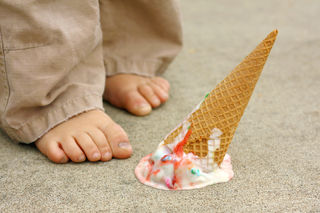Relationships
It’s Time for a New Kind of Mother’s Day
When Mother's Day falls flat.
Posted May 15, 2019

I don’t feel proud of it, but the truth is that at the end of this Mother’s Day, I felt like…a survivor! I should feel beloved, appreciated, and validated, but for some reason I feel sad and frustrated with an ache in my heart. For those of us who have the picture-perfect family, Mother’s Day can be, and usually is, a day filled with love and laughter. This is despite the usual delays, disappointments, and inevitable chaos. But for many others, more than we can ever imagine, this day is proof of everything they wish they could have and never will.
I think to myself that I should just leave well enough alone. I even feel somewhat guilty entertaining such thoughts. Who am I to speak out about a tradition that is celebrated by most of the population one way or another? I know that some pundits like to say that “every day is Mother’s Day.” Others tout the importance of a yearly tradition dedicated to honoring, expressing gratitude to, and focusing on our moms. But does everyone really enjoy this day the way the media showcases it? Are all the cards bought on this day filled with truly heartfelt wishes? Are all the flowers, chocolates and restaurant reservations paid for by children who honestly and freely feel excited to gift these expected symbolic gestures to their moms?
I, for one, am not ashamed to say that I wish this very public and commercialized (necessary?) day could be exchanged for something more private, more personal, and more meaningful. Maybe this is a result of my decades of working with clients who have spent countless hours with me analyzing why they feel the need to buckle under to the social pressure to celebrate Mother’s Day. They feel forced to go through the rituals of the day despite the pain or distance or complex dynamics which are so much a part of their relationships with their moms.
Mother’s Day is a day for celebration of so much that is good and wholesome and enduring. Yet it is also a painful reminder to those women who wish they could be mothers and aren’t yet or won’t ever be. It is an agonizing day for those mothers whose children are alienated by believing in distorted information and refusing all contact. Yes, Mother’s Day is a time for moms and their children to connect and reminisce. But it can at times be awkward and upsetting to adopted children and their parents who may feel forced to go through the motions despite being in the midst of dealing with underlying loyalty issues. And, as painful as it is to report, many stepmoms experience being told: “You are not my mom and never will be.” At times, something about the supposed sacredness and hype around Mother’s Day invites these disturbing interactions.
The heartwarming images of breakfast in bed (burnt toast and lukewarm, too-sweet coffee served by excited children in matching pajamas) can make anyone’s heart melt. But what about the women who stay under the blankets, silently mourning the children they never had despite their exhausting battle with infertility? Or the valiant single moms who don't have the financial. emotional or family resources which allow for celebration on this special day, or any day?
Yes, Mother’s Day is the perfect time to stop the frenetic rush and make the extra effort to create loving memories for a mom who has done so much for you. But what about those who are dealing with lifetime trauma as a result of childhood abuse? Do they ignore this collective display of affection for moms? Or do they hate themselves for going through the motions, for repressing their raw emotions, and for choosing to conform?
I know, most times the greater good outweighs other concerns. But to me, mothers symbolize and embody all that is nurturing and giving and loving. Wouldn’t it be a tribute to mothers and their fierce, protective love, if the day that is reserved to honor and applaud them could instead be a day which would make all mothers (including “almost mothers,” stepmothers, and adoptive mothers) and children feel safe, happy, and connected?
Do we Need a Different Mother's Day?
After more than a century of celebrating Mother’s Day in its present format, are we brave enough to take another look? Could we create a kinder, more inclusive day which would celebrate the reality of the complex, colorful, evolving, agonizing, and life-changing relationships mothers of all kinds have with their children?
Let’s use our collective intelligence and determination to create a better world by brainstorming a new and improved version of Mother’s Day. When we accomplish that, we will truly have something to celebrate.


